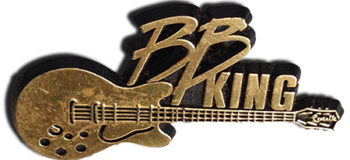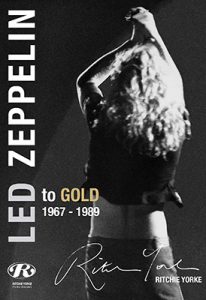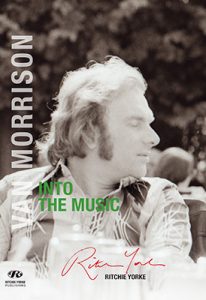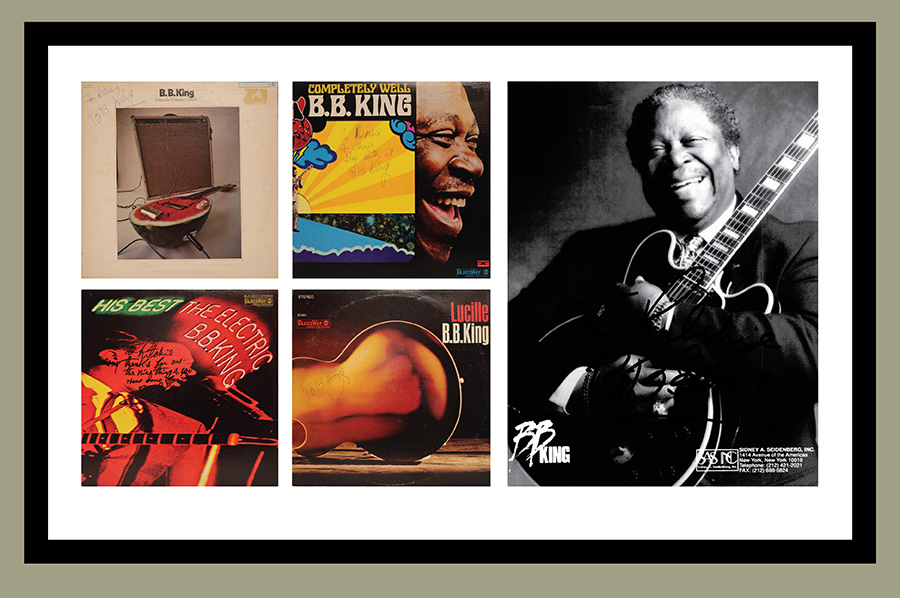
27 Jul Site 6 B.B. King
Ritchie Yorke’s Liner Notes for
HIS BEST-THE ELECTRIC B.B. KING
Not long ago, at that now famous farewell Cream concert in New York’s massive Madison Square Gardens, I suddenly realized the unfairness of the great American dream. As I sat there, amidst the screams of more than 21,000 ecstatic fans, I thought of the tens of thousands of dollars Cream was earning its ninety minutes of on stage effort.
My thoughts also wandered off across the country to other pop concerts where various young contemporary guitarists such as Jeff Beck, Jimi Hendrix, Mike Bloomfield, Alvin Bishop and dozens more, were likewise collecting many thousands of dollars doing this blues guitar thing.
I thought of B.B. King, the man who’d made it possible for Clapton, Hendrix, Beck and Company to earn those vast amounts. All too well, I realized that Cream would earn in that one night at the Gardens, a great deal more than B.B. could hope to put together in the whole of 1968. I had mental images of the little beat up clubs in the deep South where washrooms double as dressing rooms, and where you consider yourself lucky to collect half the promised fee for a night’s work.
When Cream finished Spoonful, and walked off into the bowels of the stadium without even a glance backwards, I went for a walk along 8th Ave., past the pokey little lobbies, and the pile of garbage and yesterday’s newspapers
I thought of the bitter young undiscovered guitarists I’d spoken with in the past few months — bitter because they’d been playing that damn axe for two long years and the world still hadn’t turned on to what they were putting down. The inevitable complaints about slow room service, airlines with ugly hostesses, Cadillacs with overflowing ashtrays.
And again I thought of B.B. King and an interview I’d done with him in Atlanta a few weeks previously.
I’d expected him to be bitter and none too keen to talk to a white reporter about the problems of being black; from the roots; a man out of the baked brown earth of the Mississippi Delta.
But he wasn’t bitter or even despondent. B.B. King long ago learned how to face facts. He realized that many people have hitched themselves to his bandwagon, and he doesn’t hold it against them. Indeed, he’s rather proud that Eric Clapton and company, were so impressed with his style that they saw fit to copy it.
Twenty years ago, while fiddling around with his guitar, B.B. had discovered a strange sound resulted from squeezing the neck of his axe. He developed that sound into a unique technique, one which became his trademark. Modern musicians use a fuzz box to achieve a similar effect.
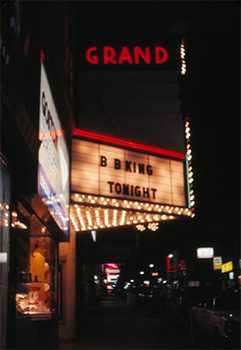
In the 20 years since, B.B. has wearily tramped the South, playing for people who dig real blues but regrettably, have very little money to pay for it. In those two decades, he’s had just two months off, and he’s been involved in 14 car accidents where the vehicle was a complete write off.
Up until recently, B.B. hadn’t a hope of making the big bread scene, or of appearing at the places where his disciples pick up the big dollar. But that’s changing. With each day’s passing, B.B. edges a little closer to super stardom. The question is not if but when he’ll get there.
Getting back to the roots is currently fashionable. Young aficionados of pop music are now involved in a quest to follow the lifeline of contemporary rock back to its source. Hundreds of thousands of them keep bumping into the name of B.B. King. The jigsaw puzzle is fitting together for B.B.
The New York Times and Eye Magazine have done big pieces on him. FM underground stations are playing the hell out of his old ABC albums. He played two songs in the soundtrack of the recent Sidney Poitier movie, For Love of Ivy, both of which are included herein.
His bookings for early 1969 are already better than any year that has gone before. He’s set to play at New York’s Fillmore East and Village Gate, the Boston Tea Party, Kent University and numerous other prime spots.
In addition, B.B.’s record label of several years, ABC Records, has set aside a B.B. King month in his honour. This latest album, His Best — The Electric B.B. King, highlights all those years of waiting.
It is I am convinced, the breakthrough album for B.B. Always one of the biggest sellers in the heavy blues market, B.B. King is all set to carve a huge path through the pop field.
The songs on this album typify a stormy, often unhappy but seldom dull life. The lyrics are simple, yet rich and deep. His gutsy singing is punctuated by tinkling piano, exploding shouts from the horns, a thudding bass, and heavy rhythmic drum beats.
But it’s the twisting mournful sounds which come from Lucille’s amplifier which demonstrate why B.B. is rightfully regarded as the greatest living blues guitar man. His skill on axe defies description; it transcends technique and descends into an abstract feeling. His imitators can and do imitate his every note, but something is still missing.
B.B. King music has no form or pattern. He’s likely to tap his foot for the first six beats of a break, before letting loose with one glorious shriek. The notes seem to jump in the air like lightning, before plunging down into your innermost soul.
Perhaps I’m naive in believing that credit should go where credit’s due, but I’m convinced that this unassuming 43-year-old blues man is tottering on the brink of super stardom. I believe his discovery will come from this album. And B.B. will no longer merely be the most significant influence on pop music of the late Sixties, but also one of its major exponents. Long ago, B.B. paid the cost to be the boss.
RITCHIE YORKE
The Globe and Mail, Toronto
Rolling Stone. U.S.A. New Musical Express. U.K.
